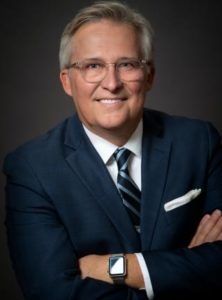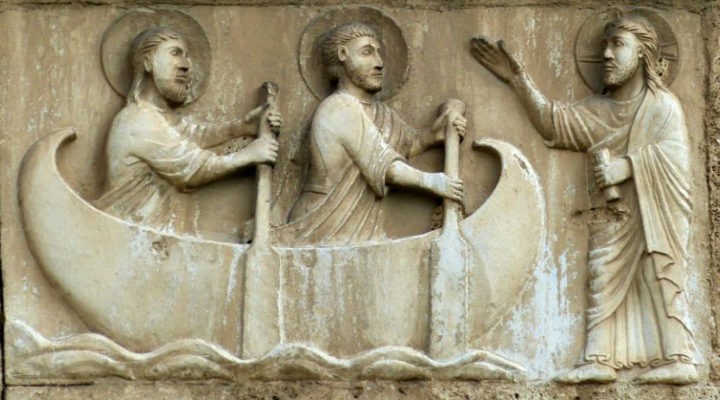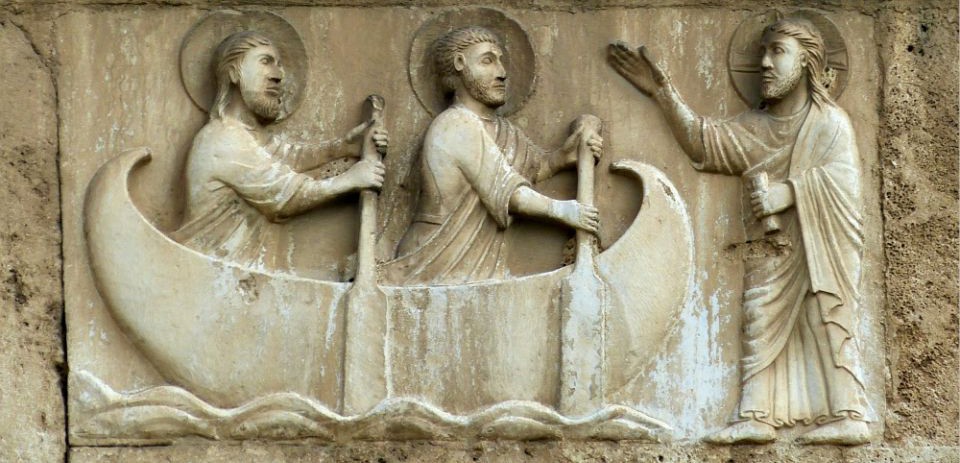It’s always about power, don’t you know? If that hasn’t become obvious to you in the past week, then you suffer from hardening of the categories caused by hyper-partisanship.
I was on three calls just Wednesday asking me about how pastors should navigate the political winds of the times we live in. A documentary team from the news organization Vice was asking how I and other pastors are speaking and leading and whether our approach has changed. A major denomination asked me to share with their pastors some words of encouragement and guidance on how to preach and engage in the community in ways that keep the integrity of the gospel and at the same time keep the congregation together. A pastor search committee in Tennessee was worried about their lead candidate being too political. I told them this is 2020 and we don’t have the luxury of being chaplains to the culture or a religious service club.

George Mason
Everything is polarizing now, it seems. Every public word is scrutinized — even from the pulpit — to see if it comes from the left or the right. And there’s no refuge in saying you’re middle of the road. That painted line has been erased.
I like to say I am partisan to the gospel first and last, that I care more about a moral vision of politics than a partisan one. The real challenge, though, is to keep returning to the words of Jesus to test true belief.
Recall, for example, that Jesus tells a parable of a man with two sons he tells to go work in his vineyard. One answers his father right off, saying he will not go. Later he changes his mind and goes. The other says he will go, but he does not. Jesus asks which did the will of his father, and the religious leaders answer the first, of course.
Jesus then applies this directly to them. Tax collectors and prostitutes will go into the kingdom of heaven before them, he says. These social outcasts believed John and reformed their lives and began to walk a straight path. But even after seeing the results of John’s preaching of repentance, the religious leaders would not change their minds and believe.
What was their problem? They were clinging to belief that was being used for their own benefit and not for others. They had the appearance of piety without the practice of it. They had words without deeds.
Jesus tells this parable when challenged by religious leaders who saw him as a threat to their power but used their belief as cover for their hypocrisy.
He asks them about whether they think the work of John the Baptist was from divine or human origin. They say they don’t know, because they know the people regard John as a prophet and they are afraid of the crowd. Why are they afraid of the crowd? Because they know if a majority turns against them, no matter what divine right they claim, they will lose their power.
Mahatma Gandhi cited what he called seven deadly social sins: Wealth without work, pleasure without conscience, knowledge without character, business without ethics, science without humanity, religion without sacrifice, politics without principle.
“It’s one thing to walk the aisle and profess your faith in Jesus as the Son of God; it’s another thing to walk out of the church and live as if Jesus is your Lord.”
That about summarizes it, doesn’t it? It’s one thing to walk the aisle and profess your faith in Jesus as the Son of God; it’s another thing to walk out of the church and live as if Jesus is your Lord.
It’s one thing to say you follow someone who told you that true faith is reckoned by following through and doing what is right by the powerless; it’s another thing to show moral courage when it costs you something and actually do that in the crucial moment.
Last week we got the word that the Louisville, Ky., police officers who murdered Breonna Taylor in her own apartment, in the middle of the night, were justified in their killing of her. And like so many times before, white Christians reflexively defended the actions of the police against Black Americans no matter the circumstances. They claim law and order and Back the Blue, and they do it under the cloak of Christian piety, citing Bible verses out of context and failing to see that justice and mercy are the weightier matters of the law that we must practice if we want to book our belief as a valid and valued asset on our spiritual balance sheet.
Jesus sides with the publicly disreputable tax collectors and prostitutes over the publicly reputable religious leaders. He celebrates the repentance and reform that happens in the lives of those who were socially scorned, and he calls into question the legitimacy of the faith of those who will use the veneer of piety to cover their pursuit of power.
In Dallas, where I live, our City Council last week passed a biennial budget that increases funding to police in a time when calls from the streets for investment in communities that have been neglected for decades has been clear and strong. Sixty percent of our city budget goes to public safety. We have the highest number of officers per capita of any city in Texas. Yet there is no positive correlation between the number of police and the rate of crime.
“We have the highest number of officers per capita of any city in Texas. Yet there is no positive correlation between the number of police and the rate of crime.”
Instead, we know that when people have hope for a better life, when they can get jobs and earn a living wage and send their kids to decent public schools and have parks and sidewalks in their neighborhoods, crime goes down and prosperity goes up. But once again as a city our leaders caved in to those whose financial support they crave to stay in power. And once again, their faith is undermined by their deeds.
We heard last week that we may not have clear results in the presidential election or a peaceful transfer of power. Those in power who fear they might lose are doing everything they can to throw doubt on the legitimacy of the election in advance so that they can deny and defy the results. We have moved beyond the point of partisanship now to where we have to defend democracy itself.
And the question some are asking is whether the church will speak and act on the side of the powerful or the people.
Jesus says the test of our faith is whether we follow through in preaching good news to the socially scorned and welcoming them into the kingdom or instead try to deny them access in order to protect our positions of privilege.
The late Rachel Held Evans was right when she said that “what makes the gospel offensive isn’t who it keeps out but who it lets in.” The same is true of our democracy. We don’t have one rule for our piety and another for our politics.
We have had too many examples just in the last week of politicians claiming to be Christians who talked out of both sides of their mouths when it became expedient for them. This is like the two sons in Jesus’ parable. Professing you will do something and not doing it is judged more harshly than professing not to but changing your mind and doing the right thing in the end. Politics without principle is destroying the social contract.
We must ask ourselves by what standard Jesus will hold our faith to account. What if he really does judge our belief by our behavior? By how we use our power and influence with respect toward those who have been left out and pushed away and pressed down and shut up. Would that accounting standard vindicate or convict you?
In the end, it’s not what we say we believe that matters; it’s what we do.
George Mason serves as senior pastor of Wilshire Baptist Church in Dallas. He is the founder and executive director of Faith Commons, an interfaith dialogue and education group, and host of the podcast “Good God.”


